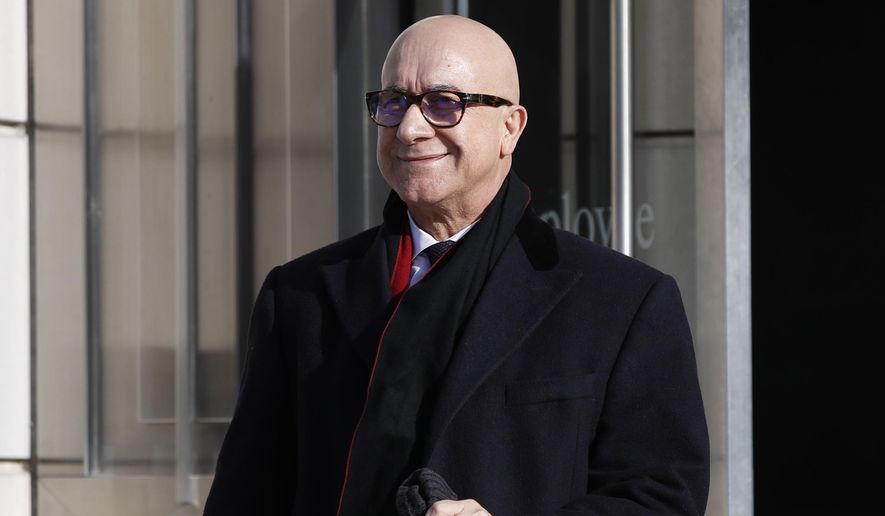ALEXANDRIA, Va. (AP) - A one-time business partner of former national security adviser Michael Flynn lied to hide the fact that he and Flynn were secretly working on behalf of the Turkish government to advance its agenda, prosecutors said Monday.
A federal jury in Alexandria heard opening statements in the case against Bijan Kian, who is accused of illegally acting as an agent of the Turkish government. Assistant U.S. Attorney John Gibbs told jurors that Kian and Flynn worked at Turkey’s behest to discredit Turkish cleric Fethullah Gulen. Turkey’s president, Recep Tayyip Erdogan, blames Gulen for a failed coup there and wants Gulen extradited from the U.S.
Prosecutors say federal law required Kian to register as a foreign agent in the interest of transparency. They say emails and other evidence show involvement and direction from high-level Turkish ministers, administered through a Turkish businessman, Kamil Alptekin, who served as a conduit and had connections to Kian.
Defense lawyers countered that Kian regularly sought and followed advice from top law firms about his registration obligations. Initially, Kian received advice that he register not as a foreign agent but as a lobbyist, and he did exactly that.
The lawyer, Robert Trout, said Kian was not required to register as a foreign agent because he was never working at Turkey’s behest. He said Kian, an Iranian-American who fled that country before the 1979 revolution that brought Ayatollah Ruhollah Khomeini to power, has strongly held views of his own in which he sees Gulen as an Islamic militant similar to Khomeini.
He said there were times during which the work product produced by Kian and Flynn, who were partners in Flynn Intel Group, diverged from the Turkish government’s interests. For instance, he said Kian produced memos recommending against Turkey seeking Gulen’s extradition.
And he also said Kian and Flynn’s advocacy was too amateurish to have been directed by Turkey. He noted that Turkey had a separate, fully registered advocacy operation that produced detailed investigations of Gulen, documented in a hardcover book. Flynn and Kian, meanwhile produced only an op-ed piece in The Hill newspaper in November 2016 and a board game called “Gulenopoly” that portrayed the cleric negatively.
Prosecutors had initially expected to call Flynn as a witness, but changed course before trial and now consider him to be an unindicted coconspirator. Defense lawyers have said prosecutors’ entire case was built on Flynn’s testimony, which they say is not credible.
The case against Kian was spun off from special counsel Robert Mueller’s investigation into Russian meddling in the 2016 presidential campaign and whether the Trump campaign coordinated with the Russians.
Flynn was a major foreign policy adviser to Trump during the campaign, and served briefly as his national security adviser. He has pleaded guilty to making false statements in a separate case, and his sentencing was put on hold in part to gauge his level of cooperation with prosecutors in the Kian case. Flynn’s lawyers have complained that prosecutors had no good reason to reverse course on putting Flynn on the stand and have worried that the decision to label Flynn as an unindicted coconspirator will hurt him at his own sentencing.
Meanwhile, the Turkish government has also criticized the government’s case. In a statement Friday to The Associated Press, Turkey’s presidential spokesman, Fahrettin Altun, said Friday that “(t)he idea that we would conspire against the United States is preposterous.”
And he said that portraying Gulen as a victim in the alleged scheme is “beneath contempt.”




Please read our comment policy before commenting.